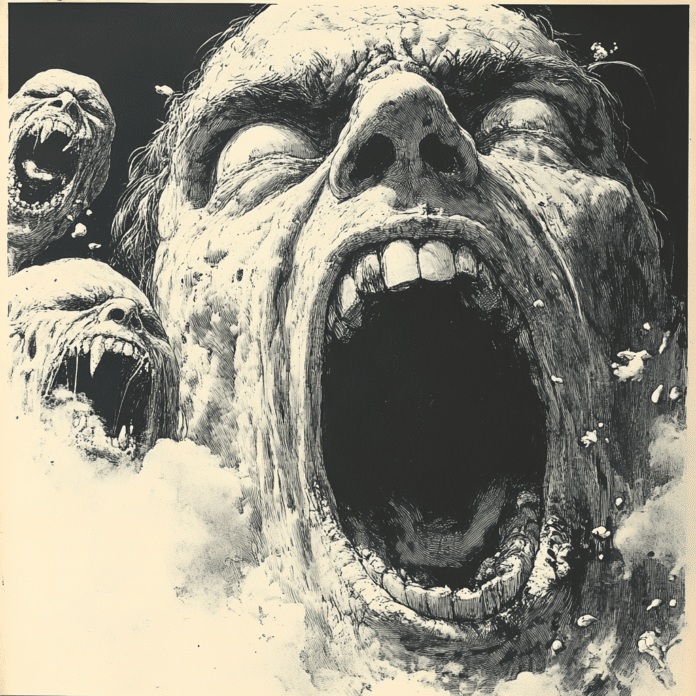Words can cut deeply, and some have long histories steeped in pain and prejudice. Slurs are derogatory terms used to insult, demean, or marginalize individuals or groups. They target various attributes, including race, gender, sexuality, and ability. What’s crucial to understand is that slurs carry a historical weight embedded in culture and society. Their power stems from not just the harsh language but also the context and intent behind their use. Addressing slurs isn’t just about acknowledging hurtful language; it’s about unpacking the layers of meaning and context that come with it.
The Layers of Slurs: Unpacking Their Meaning and Context
To really grasp the impact of slurs, it’s essential to examine where they stem from. Slurs have roots in systemic prejudices that emerge from societal structures. For example, the N-word evokes a painful history of slavery and oppression in America. Conversely, the F-word is a blunt representation of deep-seated homophobia. As people encounter these slurs, the social dynamics can shift dramatically, creating a ripple of emotional trauma and social isolation.
Furthermore, it’s not just individuals who suffer; entire communities can feel the stress and strain of slur usage. When society permits the spread of slurs, we’re essentially endorsing the ideologies behind them. Educational settings, workplaces, and public forums inadvertently become breeding grounds for misunderstandings and hostilities that stem from the careless use of language.
The message is clear: language matters. Effective communication is foundational for fostering respect and understanding. Acknowledging slurs reveals much about the society in which they exist; they’re reflections of the attitudes harbored by individuals and the communities around them.

Top 5 Slurs and Their Harmful Effects on Society
1. The N-Word: The Legacy of Racism and Pain
Maybe the most notorious slur in English, the N-word is steeped in centuries of racism. With ties to slavery and systemic disenfranchisement, its usage often stirs up resentment and hostility. A striking piece of research in the American Journal of Community Psychology reveals that Black individuals subjected to this word frequently exhibit feelings of isolation and increased depression, showcasing how deeply rooted negative language can bleed into everyday lives.
2. The F-Word: A Symbol of Homophobia
Often hurled at gay men, the F-word symbolizes violence and rejection. This slur’s rampant recognition in media contributes to the marginalization of LGBTQ+ identities. GLAAD reports alarming spikes in bullying and self-harm among LGBTQ+ youth linked directly to the use of this hate-filled term.
3. The B-Word: Gendered Violence and Misogyny
The B-word plays into a toxic narrative against women, trivializing their experiences and reflecting a wider culture of misogyny. According to the Pew Research Center, women exposed to such derogatory language often experience an uptick in harassment and discrimination. It’s staggering how a single term can represent societal-level issues in gender dynamics.
4. The R-Word: The Stigma of Disability
Once a common insult for individuals with intellectual disabilities, the R-word reinforces harmful stereotypes. Advocacy organizations like Special Olympics demonstrate through campaigns that the usage of this term strips away dignity and opportunities for those affected. It’s more than just a word; it significantly impacts the perception and treatment of disabled individuals within communities.
5. The P-Word: Racializing Gender Stereotypes
Targeting Asian individuals, the P-word often enforces harmful stereotypes of submissiveness and exoticism. Sadly, as anti-Asian violence escalates, the usage of this slur has risen as well. Studies indicate that those affected may experience internalized racism, leading to a distorted sense of identity—an alarming trend that cannot be overlooked.
The Ripple Effects: How Slurs Affect Mental Health
Slurs don’t just hurt feelings; they can wreak havoc on mental health, resulting in long-term consequences. Research consistently shows a clear correlation between using slurs and a decline in mental well-being. Individuals exposed to this negative language often report higher levels of anxiety, depression, and a significant erosion of self-worth.
Moreover, such language fosters environments where silence prevails, leaving victims feeling isolated and unable to seek support. This silence can mimic the dark reality captured poignantly in My son Died, showcasing the painful outcomes that can arise from systemic neglect of emotional and psychological needs. Mental health support systems must strengthen in schools, workplaces, and communities to combat the fallout of slur usage effectively.
Steps Toward Recovery
Encouraging open dialogues about language sensitivity could foster more understanding and empathy. Incorporating programs that advocate for mental health awareness alongside discussions on the societal impact of slurs would form vital infrastructure for recovery.

Addressing the Issue: Community Initiatives and Social Responsibility
As the negative impact of slurs becomes increasingly evident, communities and organizations are stepping up. Initiatives like the “Stop Hate” campaign are mobilizing public awareness, emphasizing the consequences of hate speech. This campaign empowers individuals to recognize the importance of language and its lasting effects on community dynamics.
Educational institutions, too, are increasingly incorporating anti-bullying programs focused explicitly on addressing the use of slurs among students. These programs foster empathy and understanding among peers, creating environments where respect for individual identities prevails.
Real-Life Examples of Positive Change
Organizations such as GLAAD and the Trevor Project are leading the charge in reshaping narratives around slurs, working tirelessly towards creating safe, supportive environments for all. This collaboration between communities can act as skids, helping to slow down the harmful effects that slurs have on societal health.
Looking Forward: The Path to Change
With conversations around slurs gaining traction, there’s growing recognition of the need for inclusive language and respectful discourse. Brands, too, are starting to take a stance. Nike’s “Equality” campaign exemplifies the shift, highlighting how language can promote social justice.
Yet, the normalization of eliminating slurs from our dialogue serves as a reminder of the greater work that still lies ahead. New education initiatives and community engagement strategies remain crucial in combating these entrenched prejudices.
Empowering Change
Individuals hold the power to transform language and culture. By choosing words that uplift rather than diminish, we set the stage for societal healing and inclusivity. This step can pave the way for a future devoid of slurs, with communities enriched by understanding and respect for diversity.
Embracing a world where slurs have no place in our conversations fosters resilience and connection, allowing us all to move forward collectively. The journey is ongoing, but together, we can build a more compassionate society—one where language matters, and its impact is cherished over a history marred by hurt.
Slurs: Understanding Their Impact
The Heavy Weight of Words
Slurs, those biting terms that can bruise deeper than physical wounds, carry a hefty historical baggage. When people engage in name-calling, they often don’t realize the ripple effects these words create—much like that catchy tune that sticks in your head. Speaking of tunes, did you ever try out the music league? It’s a fun way to bond over shared tastes while steering clear of hurtful language!
In pop culture, we see the dynamic impact of slurs, particularly in media where characters sometimes showcase resistance to prejudice. Take for example the performance of actors like Bokeem Woodbine, who’ve brought depth to roles that often challenge stereotypes. It’s essential to recognize how storytelling can either reinforce harmful messages or encourage meaningful dialogue on the implications of slurs.
Entertaining Yet Disturbing Facts
Fun tidbit: Did you know that slurs can actually vary significantly across different cultures? While a term might mean one thing in one country, it can translate to something entirely different elsewhere. Caution’s necessary—this is where languages get tricky. Just as Shiba dogs have distinct traits and personalities, so too do the words we use carry their unique weights!
On a lighter note, the rise of memes, like the infamous Willem Dafoe meme, shows how humor can stem from serious topics. However, it’s a fine line between humor and harm. Laughter can be a release so long as it doesn’t trivialize others’ experiences. Awareness plays a vital role in avoiding the pitfall of misguided humor that inadvertently brings slurs into mainstream conversation.
The Need for Sensitivity
Adding another layer, consider the change derived from awareness—especially how those educated about the harmful effects of slurs are also more likely to support respectful discourse. Remember the recent Golden Bachelor finale? Relationships and vulnerability were on display, illustrating how important love and respect are in dialogue. When we talk, it’s crucial to check our language.
Interestingly, a simple choice of words, much like a stylish Crocs backpack for your favorite outfit, can either enhance interactions or detract from them. So next time you find yourself rolling your eyes at a meme or chuckling at a funny post, think about how those seemingly harmless words or images may carry more weight than they let on. And as for those camel toe Pics—well, let’s just say that context matters, and so does our choice of words!




